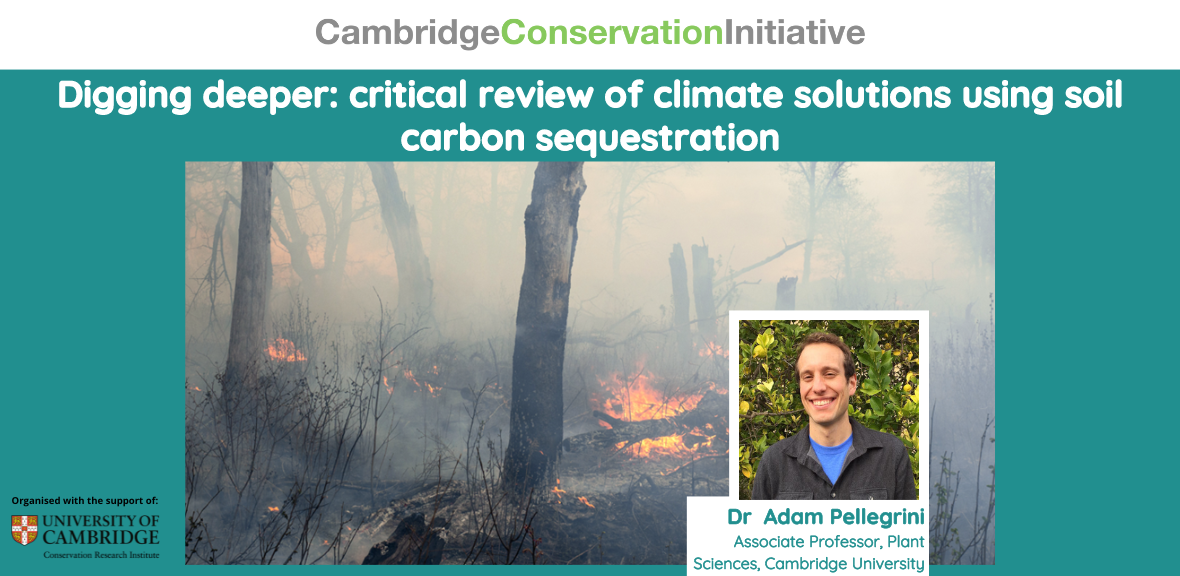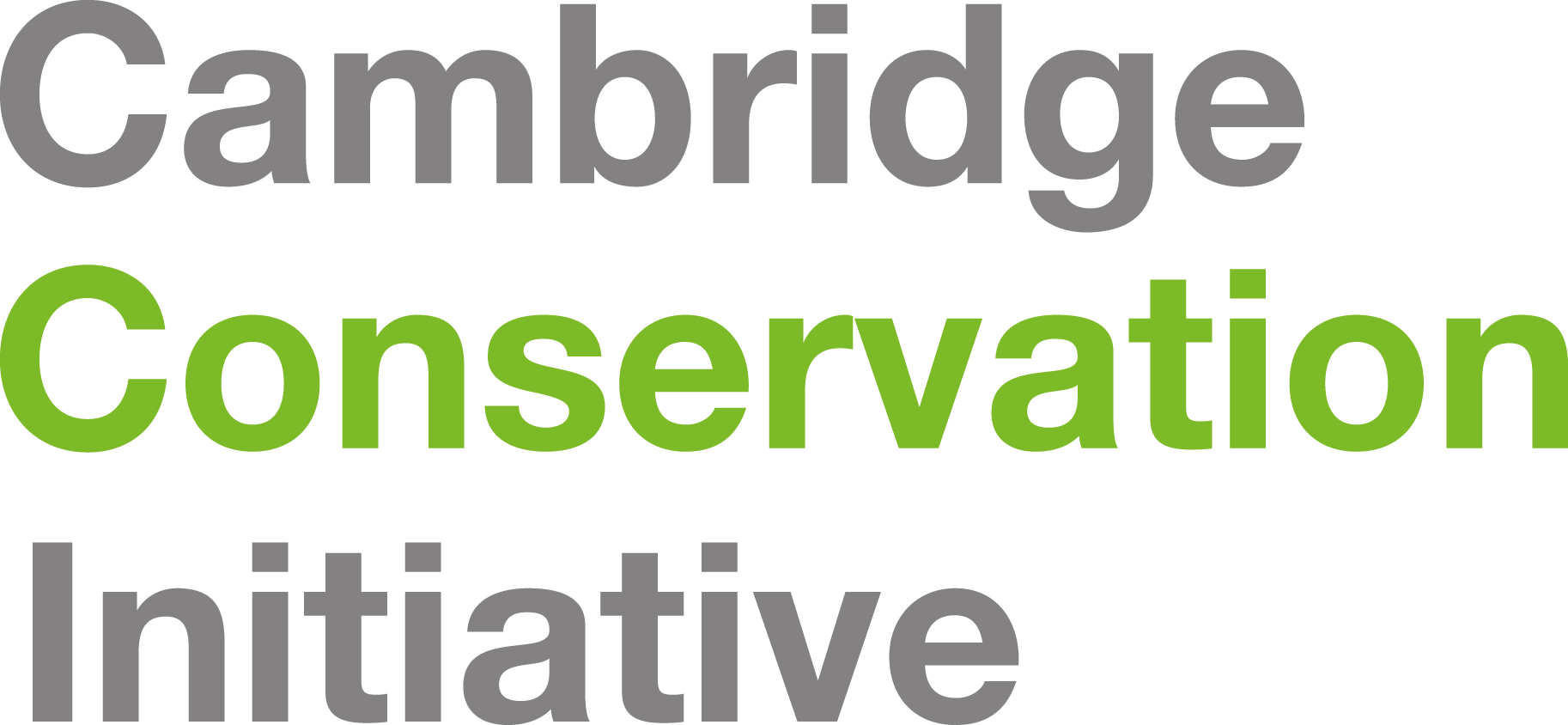
CCI Conservation Seminar - Dr Adam Pellegrini, Associate Professor, Department of Plant Sciences, Cambridge University
Digging deeper: critical review of climate solutions using soil carbon sequestration
Sign up to receive the Zoom link here: https://forms.office.com/e/WM8wd86VSP
Abstract:
Protecting, restoring and managing ecosystems in ways that promote carbon storage is important for slowing climate change. However, the impacts of these ‘nature-based climate solutions’ on greenhouse gas cycling are highly unconstrained, partly because of uncertainties in the potential and permanence of carbon storage especially belowground in soil organic matter. My presentation will address how the occurrence and management of disturbances such as fire, grazing, and agriculture can influence greenhouse gas emissions on land with a focus on CO2 removal in soils. First, using a large experimental network, I present evidence for fire determining soil carbon storage in many ecosystems, with prescribed burning stabilizing soil carbon in certain contexts. Second, combining experiments, models, and global trade datasets, I illustrate that managed grazing in rangelands exhibits little capacity to sequester soil carbon, and the net-emissions arising from maintaining livestock production often exceed soil CO2 removal because of land use emissions from feed production. Finally, using a meta-analysis and life cycle analysis of regenerative agricultural practices, I will discuss how soil CO2 removal, crop yield, and other on farm emission pathways influence the effectiveness of regenerative agriculture on greenhouse gas emissions. In summary, while nature-based climate solutions are promising, the treatment of soils deserves a critical re-evaluation through a lens that contextualizes ecosystems within the complexities of how humans both disturb and manage systems.
Bio:
Adam’s research blends basic science in ecology and carbon cycling with applied science that evaluates how global change will affect ecosystem functioning, and solution-oriented science developing ways to implement solutions to help abate climate change. Adam received his PhD from Princeton University and spent three years as a postdoctoral researcher at Stanford on fellowships from the US National Oceanic and Atmospheric Organisation and US Department of Agriculture, before joining Cambridge as an Assistant Professor in 2020. His current work focuses on understanding how ecosystems respond to wildfires and the potential for net-emission reductions in agriculture.


